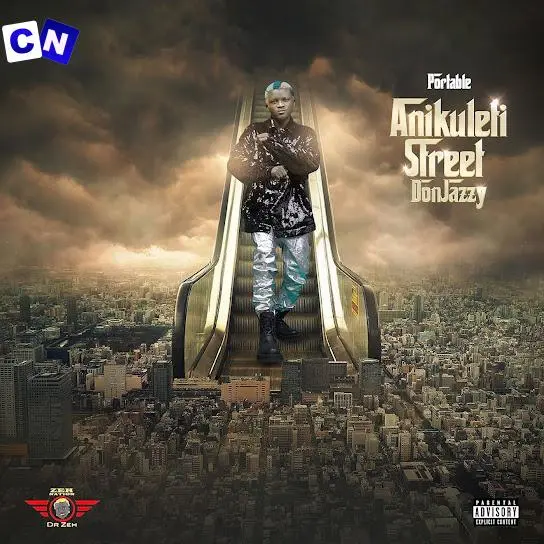The Socio-Economic Rights and Accountability Project (SERAP) has sent an urgent appeal to the Honourable Patricia Scotland QC, Commonwealth Secretary-General, urging her to “apply the Commonwealth Charter to hold Nigerian authorities to account for reported attacks on journalists covering the #EndHunger protests and peaceful protesters in several parts of the country.”
SERAP urged Mother Scotland to “apply the Commonwealth Charter to pressure the Nigerian authorities to promptly, thoroughly, impartially, independently, transparently and effectively investigate the reported attacks on journalists covering the protests in Nigeria and on peaceful protesters.”
SERAP also urged Ms Scotland to “urge the Nigerian authorities to publish the results of the investigation and hold accountable the alleged perpetrators of the violations and ensure access to justice and effective remedies for journalists and peaceful protesters affected by any violation of national law and international standards.”
SERAP urged Ms Scotland to “urge Nigerian authorities to uphold the rights of journalists to monitor and report on protests and ensure their safety, as well as ensure that journalists are not detained, threatened, attacked or restricted when covering important events of public interest, such as protests.”
In an Urgent Appeal dated August 3, 2024 and signed by SERAP deputy director Kolawole Oluwadare, the organisation said: “Targeting journalists with lethal or less-lethal force while carrying out their work is prohibited under the Nigerian Constitution and international human rights law and is contrary to the best standards of law enforcement.”
SERAP said, “Those who violate these standards must be subject to accountability and disciplinary processes. The state must take a firm stand to ensure institutional accountability, media freedom and peaceful assembly in Nigeria.”
The Urgent Appeal, addressed to Mr António Guterres, Secretary-General of the United Nations; and Mr Volker Türk, UN High Commissioner for Human Rights, reads in part: “Over the years, the Nigerian authorities have repeatedly demonstrated that they are not committed to protecting human rights.
“Respect for Commonwealth values is essential for citizens to have confidence in Commonwealth institutions. The Commonwealth must take a strong stand to protect human rights and media freedom in Nigeria, principles that are fundamental to the integrity, functioning and effectiveness of Commonwealth institutions.
“Nigerian authorities have a legal obligation to protect journalists reporting the news, including covering protests. Nigerian authorities also have an obligation to investigate and prosecute any violations that occur in the context of public demonstrations, including attacks on the press.
ALSO READ:SERAP writes to Tinubu over N729 billion lawsuit against former Minister of Humanitarian Affairs, Umar-Farouk
“The Commonwealth Charter and Declaration recognise media freedom and the inalienable right of individuals to participate in democratic processes, in particular through the peaceful exercise of their rights to freedom of expression and assembly, access to information, and freedom of the media, both offline and online.
“Any peaceful protesters and journalists detained solely for exercising their right to peaceful assembly and covering the protests must be immediately and unconditionally released.
“Law enforcement officers may only use force in ‘exceptional’ circumstances. Any use of force must be the minimum amount necessary, directed at a specific individual, and proportionate to the threat posed.
“Restrictions on the use of force, including against journalists covering protests, are even more important when security forces use lethal force such as firearms.
“The Nigerian Constitution of 1999 [as amended] and human rights treaties including the International Covenant on Civil and Political Rights and the African Charter on Human and Peoples’ Rights contain language protecting the rights to freedom of expression and access to information.
“Nigerian authorities have an obligation to consistently promote a culture of accountability for law enforcement officers during protests. Any use of force must be investigated to determine whether it was necessary and proportionate.
“Nigerian authorities have an obligation to conduct effective, impartial and timely investigations into any allegations or reasonable suspicions of unlawful use of force or other misconduct by law enforcement officials in the context of the protests.
“The presence of journalists at protests promotes transparency and accountability and can prevent such violations and abuses. In order to carry out this role, journalists have the right to observe, and thus monitor, protests and to record reactions to protests by officials or other actors.
“Journalists play a critical role as watchdogs in covering the protests. Nigerian security forces have a duty to ensure the safety of journalists covering the protests and to guarantee the public’s right to seek and receive information about these social mobilizations.
“Nigerian authorities must provide journalists with the highest level of protection to enable them to carry out their duties freely. This obligation includes the duty to avoid the use or threat of violence against journalists and to protect journalists from violence by third parties.
“The seizure, confiscation and/or destruction of records and visual or audio recording equipment belonging to journalists without due process must be prohibited and punished.
“Even if a gathering is declared unlawful or dispersed, that does not take away journalists’ right to monitor protests. Nigerian authorities have a legal obligation to provide adequate compensation to journalists for damaged equipment.
“According to our information, security forces attacked journalists and a number of peaceful protesters in Abuja and other parts of the country. Security forces reportedly fired tear gas and shot at journalists and peaceful protesters, chasing and shooting at fleeing journalists.”
“According to reports, bullets penetrated Premium Times reporters’ cars that were taking journalists out of locations in three different locations in Abuja. The journalists in the cars that were shot by security agents were journalists from The PUNCH, The Cable, Premium Times and Peoples Gazette.”
“Also, the windows of passenger vehicles were reportedly shattered by gunfire. The journalists were clearly seen identifying themselves as members of the press. Security operatives also reportedly arrested a freelance journalist, Ayoola Babalola, and several peaceful protesters in Abuja, Federal Capital Territory, on Saturday.”
“More than 50 journalists were reportedly arrested simply for covering the protests.” Journalist Abdulqudus Ogundapo reportedly said he feared for his life while caught in the crossfire.”
“On Thursday, law enforcement officers reportedly abducted and made off with the camera and mobile phone of The PUNCH photojournalist Kayode Jaiyeola. On Friday in the Federal Capital Territory, police officers reportedly fired tear gas at journalists covering a protest at Berger roundabout.”
“In Borno State, nine Radio Ndarason Internationale staff were reportedly arrested by security officials in Maiduguri while they were covering a protest.”
SERAP calls on Commonwealth to sanction Nigeria over attacks on journalists, protesters first appeared on Latest Nigeria News | Headlines from Ripples Nigeria.
 JamzNG Latest News, Gist, Entertainment in Nigeria
JamzNG Latest News, Gist, Entertainment in Nigeria






